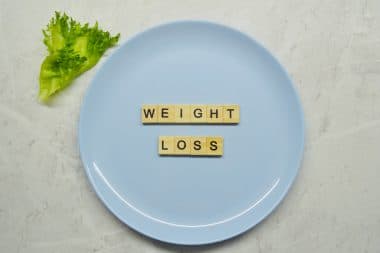There are many reasons why people follow a certain diet plan. Sometimes it’s for their health, and other times it’s for environmental reasons. In some cases, it’s all about experimenting and seeing what makes your body feel good. Over the years, diet fads come and go but there are some that become a permanent fixture in people’s lifestyles and cultures.
When it comes to finding a diet plan that works for you, it’s important to do your research before you change your eating habits. In some cases, following a diet plan could help you with your weight loss goals, so it pays to understand what you’re putting in your body! Here we offer a breakdown of some of the most popular diet plans out there.
Veganism
Veganism is more than just a diet nowadays and instead a lifestyle choice. In its simplest terms, veganism is the avoidance of all animal products in your diet. Some take this further by also not buying any products derived from animals, such as leather, and not buying products that have been tested on animals.
By following a vegan diet, you must avoid meat, fish, dairy, eggs and even honey. Instead, your vegan diet will be based mostly on fruit, vegetables, nuts, grains, seeds, beans and pulses. Vegans are still able to eat all sorts of their favourite foods like pizza, sweets and curry, just with alternative vegan ingredients instead.
A vegan diet is entirely plant-based which can be good for you, but it’s important to make sure you are getting enough protein and vitamins. In particular, you should plan your diet properly to include essential nutrients like calcium, iron and vitamin B12 which typically come from animal products.
Low Carb Diet
Many follow a low carb diet to allow them to include more protein and fat in their diet. In some cases, eating fewer carbohydrates can result in weight loss and improved health. Carbs are typically found in sugary foods, and pasta, potatoes, rice and bread.
The idea is to reduce the amount of carbs in your diet to allow room for healthier options, encouraging you to make better choices when it comes to your meals and snacks. It’s important that you do your research to make sure a low carb diet is safe for you.
Intermittent Fasting
Intermittent fasting is a way of changing your eating schedule, so that you eat during an 8-hour window and fast for around 16 hours. It can be very effective in losing fat but maintaining muscle, but it’s important to remember that you still eat the same amount of calories, just in a shorter window.
When your body is fasting, it’s able to burn fat easier than when you are in the fed state. The fed state involves the period when your body is digesting and absorbing food, and can last for 3-5 hours. You don’t typically enter a fasted state until 12 hours after your last meal, which means it can be rare for your body to ever reach this stage unless you create a longer period of time without food.
You can follow the model of an 8-hour eating period followed by a 16-hour fast each day, or you can do it just once a week if you’re getting started. You could also try intermittent fasting on alternate days.
Paleo Diet
The paleo diet typically tries to emulate what our ancestors used to eat in the days of the cavemen. Humans were naturally hunter-gatherers, eating what they could hunt and produce themselves. This includes meat, fish, fruit, vegetables, nuts and seeds.
The idea behind the paleo diet is to return to a way of eating that early humans followed. Many believe that our modern diet is too difficult for the body to keep up with, resulting in obesity and health problems thanks to processed foods. On a paleo diet, you should try to avoid dairy products, grains and refined sugar.
It’s important to make sure you’re still getting the nutrients your body needs. A paleo diet can reduce your intake of whole grains, which are sources of fibre, and dairy products which are sources of calcium.








Reply